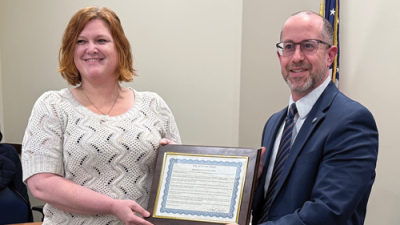GROSSE POINTE CITY — When the COVID-19 pandemic hit and it was determined that outdoor dining was a safer option for restaurant patrons, Grosse Pointe City became one of the first communities in Michigan to allow year-round outdoor dining in areas that had previously been used for parking, such as on-street parking spots.
What was initially approved as a lifeline for struggling eateries has become a popular option for diners, but City officials said they’ve also come to see that they need to enact more regulation with regard to outdoor dining platforms. As a result, the Grosse Pointe City Council voted unanimously Jan. 23 in favor of a set of rules with regard to dining platforms that occupy public parking spaces.
“Now that we have some more experience (with dining platforms), we’re coming forward with some new guidelines,” City Manager Peter Dame said.
The set of rules includes the mandate that dining platforms can’t occupy more than two parallel parking spaces or more than four angled parking spaces, must be enclosed by a protective railing made of a sturdy material such as wrought iron or steel, and must feature furniture “of high-quality design” and made of “substantial metal material” such as wrought iron or cast aluminum. Furthermore, the dining platform floor must be created out of composite material — not wood — and can only be brown or gray.
“We want to make sure that they’re high quality,” City Planner Gage Belko, of McKenna Associates, told the council.
Belko said the platforms either need to be flush with the curb or feature a ramp.
“These do have to be ADA accessible,” Belko said, referring to the need for the platforms to comply with the Americans with Disabilities Act.
Officials said they wanted to create a set of guidelines after one restaurant in the City kept its dining platform in place, despite the fact that it was no longer being used. Officials declined to name the restaurant but said the unused dining platform had become unsightly.
“You have to be using it to have it,” City Councilman Christopher Walsh said. “We’ve had a substantial example of nonuse for quite some time.”
In addition, restaurant owners will need to pay for an annual license and fee for a dining platform, to make up for lost parking revenue.
“If they’re not using it, they’re not going to want to pay a fee,” Dame said. “We haven’t charged a fee, to date.”
With a possible pending application from another restaurant for a dining platform, administrators urged the council to vote to establish these guidelines. Mayor Sheila Tomkowiak said the guidelines may be modified in the future to address a few additional areas that were still being debated at press time, including winter use, safety issues and a more precise meaning for the “open air” requirement of these platforms.
“I agree that it’s important that we have something in place,” Tomkowiak said.
 Publication select ▼
Publication select ▼





















